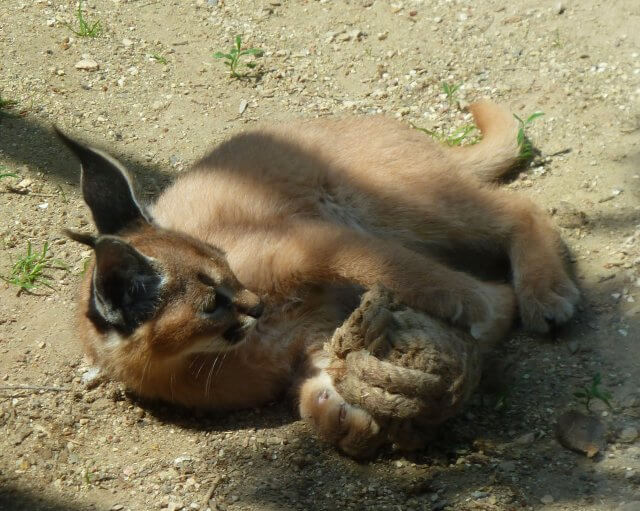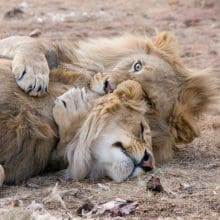Caracals Playful Nature: Playful Games Caracals Love to Play
Caracals Love to Play
Caracals Playful Nature: Caracals, also known as desert lynxes, are fascinating creatures that inhabit various regions of Africa, the Middle East, and parts of Asia. These medium-sized wild cats are known for their distinctive tufted ears and impressive jumping abilities. While caracals are primarily solitary animals, they also possess a playful nature that is often overlooked. In this article, we will explore the playful games that caracals love to play, shedding light on their behavior and providing valuable insights into their world.
The Importance of Play for Caracals
Play is a crucial aspect of a caracal’s life, especially during their early stages of development. Just like domestic cats, caracal kittens engage in play to learn essential skills, such as hunting techniques and social interactions. Through play, they develop their physical coordination, agility, and problem-solving abilities. Play also helps caracals build strong bonds with their siblings and learn the boundaries of their own strength.
As caracals grow older, play continues to be an integral part of their lives. Even as solitary adults, they engage in playful behaviors to keep themselves mentally and physically stimulated. Play serves as a form of exercise, allowing caracals to maintain their agility and hunting skills. It also helps them relieve stress and boredom, enhancing their overall well-being.
Playful Games Caracals Love
Caracals have a wide range of playful games they enjoy, many of which mimic their natural hunting behaviors. Let’s explore some of the most common games caracals engage in:
1. Stalking and Pouncing
Caracals Playful Nature: Stalking and pouncing games are reminiscent of a caracal’s hunting instincts. They often hide behind bushes or rocks, patiently observing their surroundings before launching themselves at their target. This game allows caracals to practice their stealth and precision, honing their hunting skills even when there is no real prey involved.
2. Chasing and Tag
Chasing and tag games are popular among caracals, especially when they have companions. They take turns chasing each other, mimicking the pursuit of prey. This game not only provides physical exercise but also helps caracals refine their speed and agility.
3. Object Manipulation
Caracals are known for their dexterity and ability to manipulate objects with their paws. They often engage in games that involve batting, tossing, and catching objects such as leaves, twigs, or even small rocks. This playful behavior helps them improve their coordination and fine motor skills.
4. Climbing and Jumping
Caracals are exceptional climbers and jumpers, and they love to showcase their skills through playful games. They can be seen leaping from tree branches or scaling rocks with ease. Climbing and jumping games allow caracals to exercise their muscles and maintain their physical fitness.
Case Study: Playful Caracals in Captivity
Observing caracals in captivity provides valuable insights into their playful nature. In a study conducted at a wildlife sanctuary, researchers observed a group of caracals engaging in various playful games. The caracals were provided with toys, such as balls and stuffed animals, to stimulate their play behavior.
The study revealed that the caracals showed a strong preference for stalking and pouncing games. They would hide behind rocks or bushes, patiently waiting for the perfect moment to pounce on their toys. The researchers also noted that the caracals displayed high levels of enthusiasm and excitement during play, indicating their enjoyment of these games.
Furthermore, the study found that play had a positive impact on the caracals’ overall well-being. The playful activities helped reduce stress and boredom, leading to improved physical and mental health. The caracals appeared more content and exhibited fewer signs of aggression or frustration.
Conclusion
Caracals Playful Nature: Caracals may be known for their hunting prowess and solitary nature, but their playful side should not be overlooked. Play serves as a vital component of their lives, helping them develop essential skills, maintain their physical fitness, and enhance their overall well-being. From stalking and pouncing to climbing and jumping, caracals engage in a variety of playful games that mirror their natural behaviors. Understanding and appreciating the playful nature of caracals allows us to gain a deeper insight into their world and foster a greater appreciation for these magnificent creatures.
Read More About Caracals From Wikipedia




